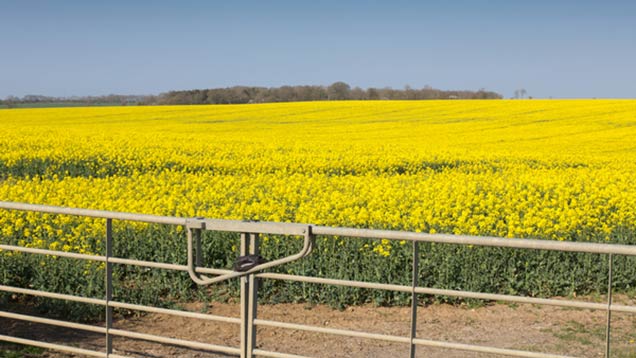NFU may make second request for neonicotinoid approval
 ©Tim Scrivener
©Tim Scrivener The NFU is considering making a second application for farmers to use neonicotinoid seed treatments on oilseed rape this summer after its first request was refused.
The union had hoped that growers would be able to use a limited and controlled amount of neonicotinoid-treated rapeseed to combat cabbage stem flea beetle across 54% of the crop area.
But it said on Friday (3 July) that its initial application had been rejected.
See also: Emergency neonicotinoid application rejected
Union leaders are expected to submit a second request, albeit for a reduced crop area.
NFU vice-president Guy Smith said: “It is extremely disappointing that we have received a refusal to what we consider to be a thorough and robust application.”
Confirmation that the initial request had been turned down followed weeks of wrangling with government officials over the application – a process, described by the NFU as deeply frustrating, painful and prolonged.
Defra has the power to allow farmers to use neonicotinoids despite an EU-wide ban introduced amid concern that the chemicals kill pollinators, including bees.
The NFU disputes the assertion that neonicotinoids are harmful, insisting the chemicals are a vital insecticide.
The NFU said it understood that the Chemical Regulation Directorate and Expert Committee on Pesticides had decided as long ago as May to not recommend approval.
But it had taken “more than a month of confusion” to get this confirmed.
Calling for a more transparent process as the NFU deliberated a second application, Mr Smith said the union had submitted “extensive evidence” to support the need for emergency use.
“We have found the application process to be obscure, inconsistent and confusing,” he said.
Defra insists it takes a science-based approach when considering applications to use neonicotinoids.
A spokeswoman for the Chemical Regulation Directorate said: “The issue of whether emergency authorisations of neonicotinoid seed treatments can be granted is still under consideration.”
The Country Land & Business Association said the best long-term outcome would be to reach a point where neonicotinoids were no longer routinely needed.
But in the shorter-term the chemicals were critical to many farmers for growing healthy and viable crops, it said.
But organic farmers welcomed the rejection of the NFU’s application.
The Soil Association said it had been “concerned that commercial pressure might overwhelm science” and was “pleased that on this occasion that has not been the case”.

